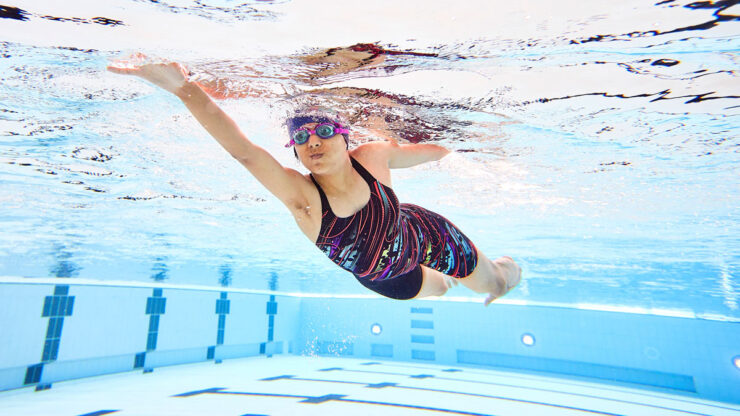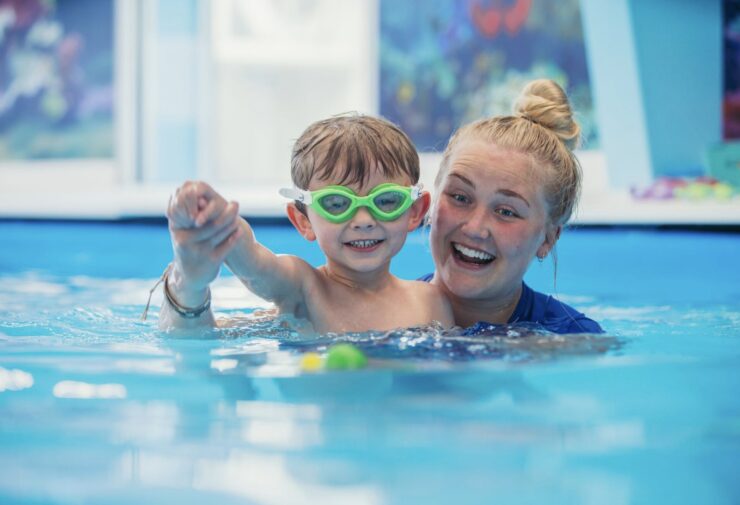Swimming is a great sport for everyone, but it can have many benefits for those who have specific needs or health problems. Even children with special needs can have great benefits for motor skills if they try swimming. Of course, the exception is only those who have a fear of water for whatever reason. And the rest, it’s certainly worth trying at least and seeing if there are any positive developments from it.
We must emphasize that swimming not only improves motor skills and body flexibility but can also improve social skills at the same time. However, finding the right swim lessons for special needs children can be challenging. But not for long. You can find on this site really useful information, but also to check all aspects like the swimsafer test and safety protocols, so that you know that everything is in order, before embarking on this adventure.
Still, if you need some help choosing the right swim lessons for a special needs child, you need to stay with us, as we have some tips to share:
1. Research various swim programs around you
Not every swimming club provides this type of service. Instead of being frustrated because of that, keep in mind that not every instructor is trained to work with special needs children. It requires a lot of knowledge and dedication, so you need to extend your research and find the right club for you.
Sometimes you may not be the best one around, and you may need to explore the surroundings. Also, check with your community if they have some recommendations on this.
2. Check on instructor’s and club’s qualifications

As we said, special needs children are a pretty specific group to work with, and it requires quite a dedication for one to become an instructor. That’s why you will have to look for swim programs that have instructors who are trained to work with children with special needs. They must be qualified to handle such a challenge.
We are sure you don’t want to leave your special kid with someone who doesn’t know how to properly work with them.
3. Visit the pool or the club
Before making a decision, we suggest you pay a visit to the pool. If possible, take your child with you, and see how they react.
You’ll have to make sure the pool is accessible for your child and that the facilities are clean and well-maintained. Also, you’ll have a chance to talk to the instructors, or even see how they work with special needs people.
4. Meet with the instructors
Before you make any decision, you’ll have to meet the people your child will spend time with. They need to be aware of your child’s abilities. That way, instructors can develop a personalized plan, and determine in which group activities they can include the child.
Also, you will sleep better knowing that those people are kind, professional, and dedicated to their work. It’s always better to communicate with them, especially if your kid has a hard time talking or they can’t even talk about what they experience during the classes.
5. Don’t force your kid into demanding activities

Start slowly and see if your kid accepts the new activities. Swim clubs and instructors can be really helpful in providing feedback. When you don’t push too hard, your child can build confidence and won’t get overwhelmed. Learning to swim can take time, especially for children with special needs. Be patient and supportive of your child as they learn and progress.
6. Look for sensory-friendly clubs and pools
Children with special needs often have sensory sensitivity. So, you need to find a program to accommodate their special needs. For example, a pool with warmer water with no unnecessary noise around is great for children who can’t handle loud surroundings. Also, find a smaller group or even consider individual classes if the child has a hard time interacting with other people.
This is a challenge, but with ongoing communication and support, we are sure your child will show great improvement in just a few weeks.
7. Check on the safety measures and accessibility
Some special needs children use wheelchairs or other supportive mobility aids. So, you must ensure everything is adapted to the situation. Also, check if there are lifeguards on duty and safety equipment. The pool surroundings are usually slippery, so it makes it challenging for the special needs kids to move freely.
As a parent, you have a complete right to ask if there is a trained staff in CPR and first aid. The special needs pools must meet the safety standards because working with these children is a challenge itself. If you are suspicious, it’s better not to let your child have a class, instead of risking their health because it looked fine on the outside.
8. Be involved as much as you can

Attend the swim lessons and make sure you track down the progress. Take your time and monitor the process, so you can understand what instructors are doing and how it benefits your child. This can help you better understand their needs and progress and provide encouragement and support.
On the other hand, your child will appreciate your presence. Keep in mind that special needs kids often look for their parents in the crowd and may be more confident if you’re around. So, don’t leave your child, even if they are fine being with people they don’t know.
Conclusion
Finding the right pool and swim classes for special needs children is quite a challenge and requires extra effort and research. But once you find it, the benefits are countless. Swimming is great for physical health, socialization, self-esteem, and improving motoric functions.
With the right program, your child can learn to enjoy the water and gain valuable skills that can last a lifetime. Additionally, it improves their overall health, and they will be happier and more confident. As a result, they have a better life quality, which is a top priority for every parent of special needs children.

